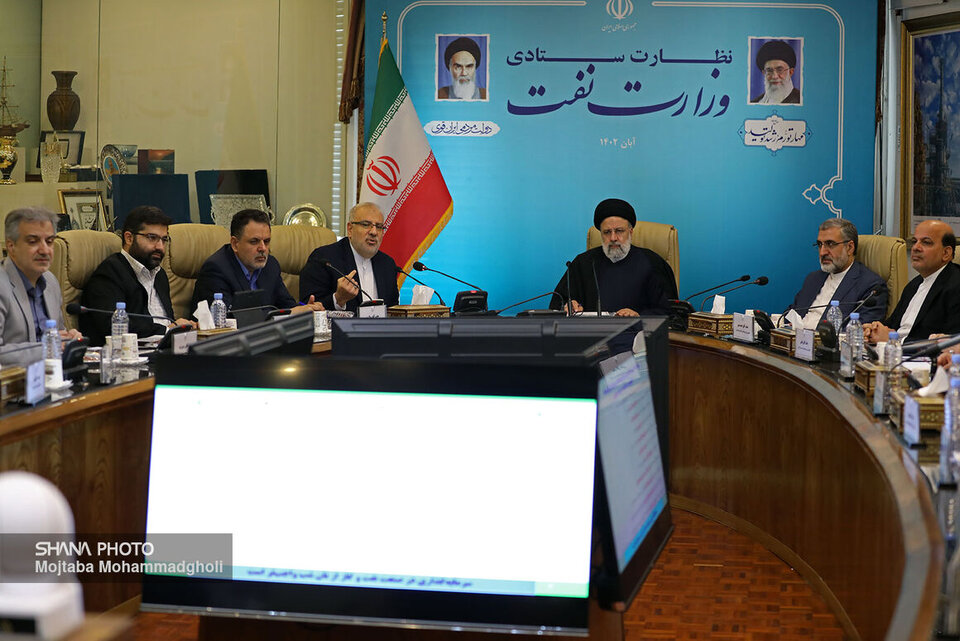He made the statement during his visit to the Oil Ministry and meeting with Oil Minister Javad Owji and other top officials, discussing the ministry’s performance and problems and giving guidelines for promoting quality and boosting output.
“Oil and gas industry is the best sector for investment,” said the president, urging oil officials to attract more domestic and foreign capitals for accelerating the process of production and increasing revenues.
He also urged the ministry to avoid selling raw materials as underlined by the Leader of the Islamic Revolution, pointing out that the processing of crude oil creates job opportunities and boosts productivity.
Implementation of development projects, flare gas collection by using the expertise of knowledge-based companies, and production and consumption management were among the issues Raeisi put great emphasis on.
He said the country is grappling with fuel smuggling, urging all related organizations to cooperate with the Oil Ministry to solve the predicament.
The president also stressed the need for establishing integrated systems in petrochemical upstream, midstream, and downstream sectors within the Oil Ministry’s general policies, redressing imbalances particularly in gasoline and gas sectors, devising plans for attracting private-sector investors, and using artificial intelligence (AI) in oil and gas industry through cooperation of knowledge-based firms.
The exploitation of fields shared with neighboring states is among the top priorities of the government, which helps attract investment, Raeisi mentioned.
Raeisi briefed on ministry performance
Owji gave the president a report on his ministry’s performance over the past two years.
The ministry has made investments in completing partly-finished projects and implementing new projects to boost production, carried out gas megaprojects, collected flare gas, expanded the storage of natural gas, increased oil and gas condensate refining capacities, and completed and launched the oil pipeline projects, he said.
In addition, several petrochemical and gas projects have been completed and put into operation, said Owji, adding first-time production of sanctioned strategic items in collaboration with knowledge-based companies, increase in oil and gas output through investing in joint fields and boosting refineries’ capacities, hike in oil, gas, and petrochemical exports, sustainable fuel supply, fight against fuel smuggling, optimization of fuel consumption, and unprecedented storage of fuel are among the measures the ministry has carried out during the two-year period.
The ministry has adopted non-pricing strategies to reduce energy consumption, put gas consumption optimization plan into action, promoted energy diplomacy and international interactions, exported technical and engineering services to different countries, developed knowledge-based firms’ cooperation, and paid due heed to human resources and social responsibilities, Owji concluded.


Your Comment